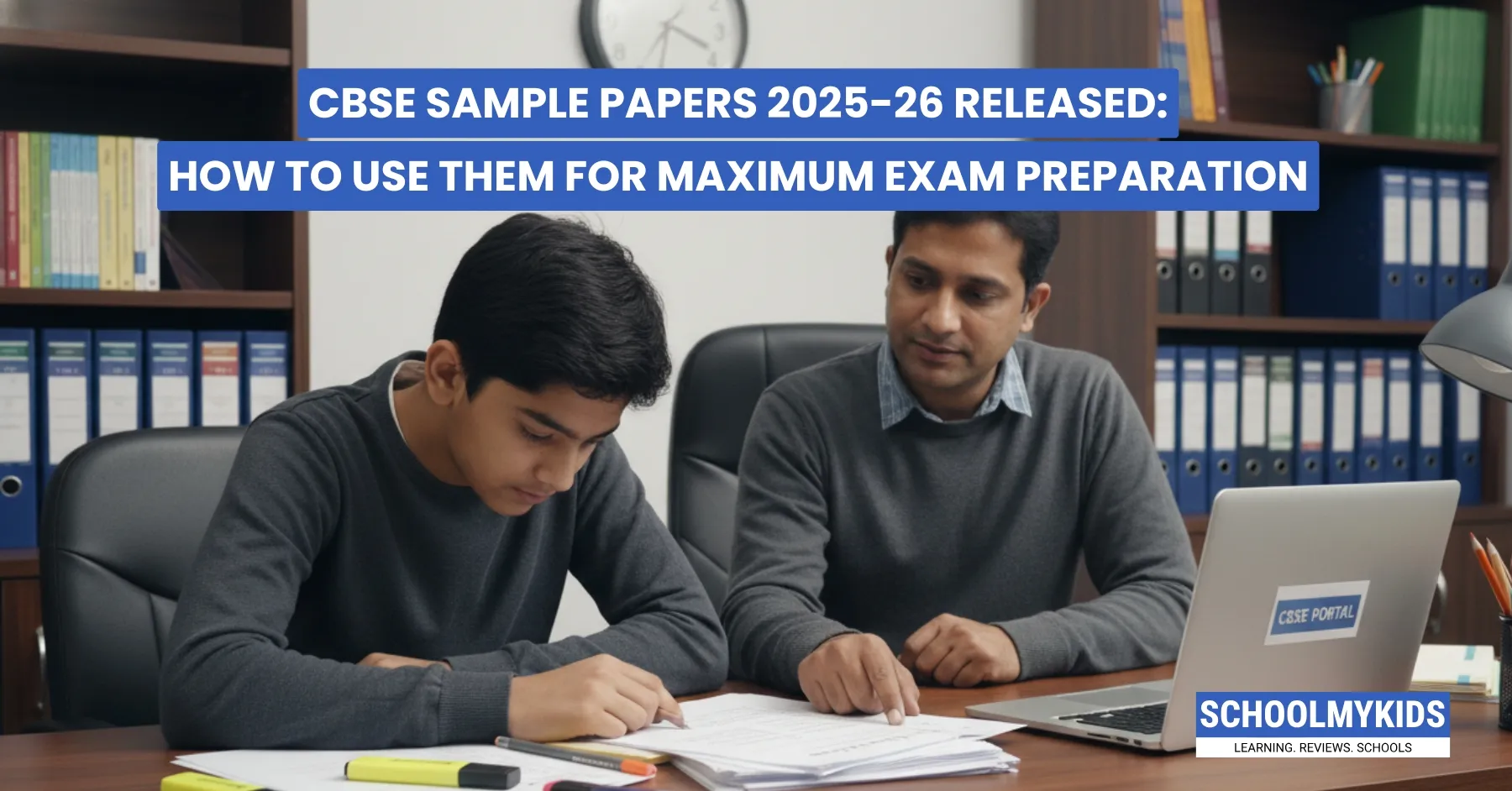The CBSE sample papers are finally out, and if you're like most students, you've probably downloaded them, looked at them once, felt overwhelmed, and then forgotten about them.
We know that sample papers often seem boring. The syllabus feels never-ending. And solving entire papers feels like too much work when chapters are still left to finish. But these sample papers are actually your secret weapon if you know how to use them right.
Let's look at how to make sample papers work for YOU, not against you.
How to Download CBSE Sample Papers (Class 10 and 12)?
Before getting into strategies, let's make sure you have the papers. Here's how to download them:
For Class 10:
- Go to cbseacademic.nic.in
- Click on the 'CBSE Academic Website' link
- Hover over the 'Sample Question Paper' tab at the top
- Select 'SQP 2025–2026' then click on 'Class X'
- You'll see a list of all subjects with their sample papers and marking schemes
- Click on each subject to download the PDF
For Class 12: Follow the same steps, but in step 4, click on 'Class XII' instead of Class X.
Keep all these PDFs in one folder on your phone or laptop. Name the folder something like "Board Exam Practice" so you can find it easily.
First Things First: Don't Try to Solve Everything at Once
This is where most students mess up. They think, "Let's solve all sample papers in one week!" and then burn out after half a paper.
Pro Tip: Start small. Pick ONE subject. Not all five. Just one. The subject you're most comfortable with. Solve one paper from that subject first. This gives you confidence and helps you understand what sample papers are actually about.
The Right Time to Start Using Sample Papers
If the syllabus isn't finished yet, don't stress about solving full papers. Use them differently:
- When the syllabus is incomplete: Open the sample paper and just READ the questions. See what's being asked. Check which chapters have more questions. This helps plan studies better.
- When the syllabus is 70-80% done: Start solving the parts you've studied. Skip the rest. No guilt needed. You're building practice, not giving the actual exam.
- When the syllabus is complete: Now go all in. Full papers. Proper timing. The whole deal.
The 3-Round Strategy That Actually Works
- Round 1 - The Learning Round: Don't time yourself. Keep your textbook and notes nearby. Solve the paper, but check answers as you go. Make notes of questions that seem tricky. This isn't about testing yourself – it's about learning the pattern.
- Round 2 - The Practice Round: Now time yourself, but be relaxed about it. Use a timer, but if you go over by 15-20 minutes, that's fine. Focus on completing the paper. Check which sections ate up your time.
- Round 3 - The Real Deal: Strict timing. No phone. No distractions. Treat it like the actual exam. This is when you see your real score and real speed.
Making Notes That You'll Actually Use
While solving sample papers, don't just check right or wrong. Make three separate lists in a notebook:
- Silly Mistakes List: Questions you knew but messed up (calculation errors, missed units, read the question wrong)
- Concept Gaps List: Topics you need to study again
- Golden Questions List: Questions with tricks or important formulas you keep forgetting
Revise these lists before your exam.
The Marking Scheme is Your Best Friend
Most students ignore the marking scheme. Big mistake. The marking scheme shows you EXACTLY what CBSE wants in your answers.
See how they're giving step marks. Notice the keywords they expect. Check how much to write for 1, 2, or 3 marks. Sometimes you're writing too much and wasting time. Sometimes you're writing too little and losing marks.
Subject-Wise Tips (Quick Version)
- Maths: Do the paper in reverse if you want. Start from the hard questions when your mind is fresh. The easy ones you can do later, even when tired.
- Science: Read questions twice. They love twisting simple concepts. Underline keywords in questions.
- Social Science: Time management is everything. Don't write essays for 3-mark questions. Practice writing short but complete answers.
- Languages: Sample papers help you understand passage types and writing format. Practice the format, not just content.
What NOT to Do
- Don't solve papers just to get a good score on the paper. You're fooling yourself.
- Don't compare your scores with friends. Everyone's at a different preparation level.
- Don't wait to finish all chapters before touching sample papers.
- Don't skip the marking scheme. Seriously, don't.
The One-Week-Before-Exam Strategy
If boards are close and you haven't touched sample papers yet, breathe. You can still use them.
Solve ONE paper per subject. That's it. Focus on understanding the pattern, managing time, and identifying your weak areas. Then spend the remaining days fixing those weak spots.
It's better to solve five papers properly than 15 papers carelessly.
Conclusion
Sample papers aren't magic. They won't teach you the syllabus. But if you use them smartly, they show you WHAT to study, HOW to write answers, and WHERE you're losing marks.
Start today. Just one subject. One paper. Give it a try.









Be the first one to comment on this story.